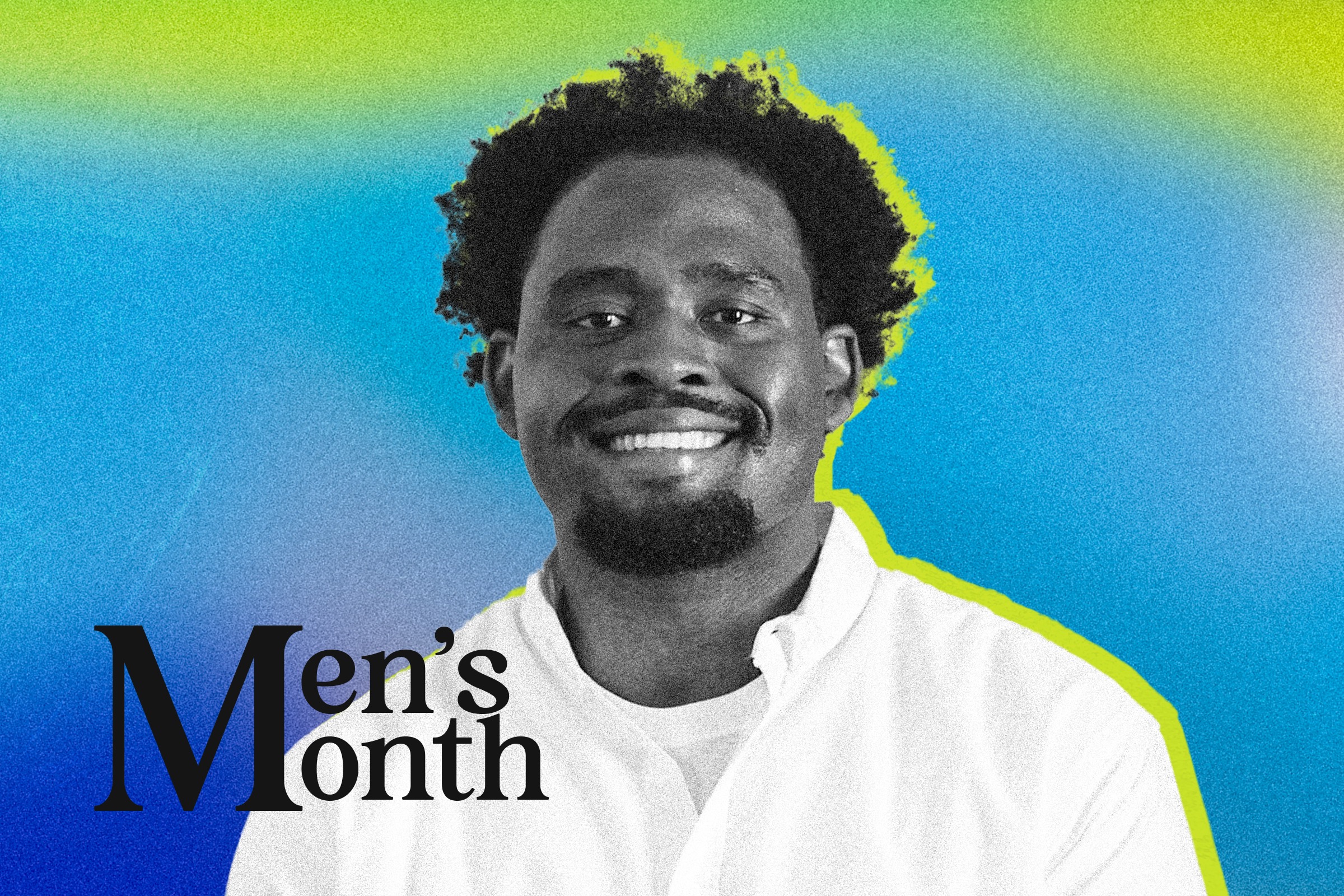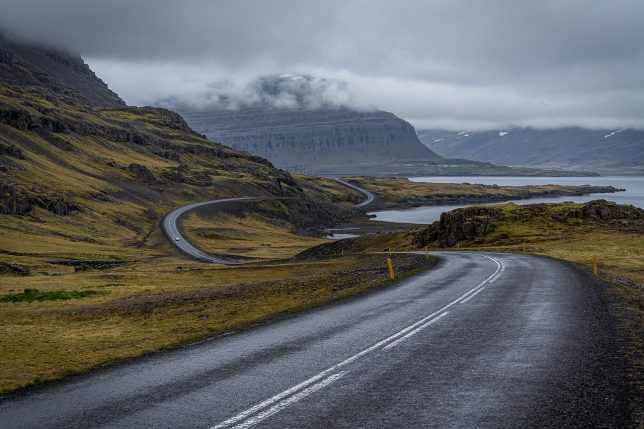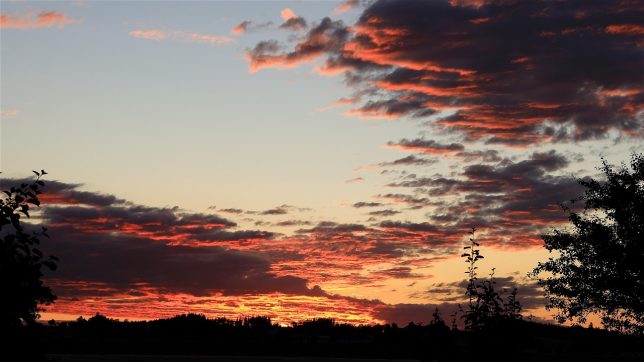The Defining Series was launched to amplify the experiences and testimonies of members of our community. For the month of November, UN-ASSOCIATED is dedicating its content, including The Defining Series, to the men of our community in an effort to redefine manhood as defined by the Word of God and cultivate a space and platform for men of God seeking support, community and the opportunity to be transparent and wholly themselves. For this edition of The Defining Series, men of God from our community shared their testimonies of their relationships to masculinity and how their faith has strengthened their ability to stand in the men God has called them to be.
Editor-in-Chief Danielle Clayton sat down with Vallejo native and Un-Associated writer, Phillip Prewitt to reflect on his identity as a man and the importance of men having an outlet and place to be vulnerable.
Danielle Clayton: I am Danielle Clayton and this is The Defining Series: Men’s Month Edition. And you are?
Phillip Prewitt: Phillip Prewitt.
D: Men’s Month was pretty much your idea. Can you talk a little bit about why you wanted Men’s Month and why you thought it was important for us as a ministry to launch?
P: I think it was important because the women of UN-ASSOCIATED and the world have done a great job advocating and doing these great programs and different things for woman and spirituality, but I felt men are left on the back end. I was kind of surprised, having been on the team for three years now, that the men haven’t done this before, especially with mental health and the state it’s in currently, with men struggling and looking for a way. I know through my experience, it’s hard for men to talk about how they’re struggling; they always keep it bottled up. As luck would have it, God has placed me in different situations where I am able to have conversations with and talk to men struggling and I noticed there’s not a lot of conversations like that for men. So, I said, “why not us,” and Emmanuel ran with it.
D: Since you’re talking about the experience of men and what it’s like to be a man, how do you personally define masculinity and how has that definition evolved over time?
P: I define masculinity as being born a man and living that day by day, and being strong and being a leader. Growing up, the key thing and definition of a man growing up was never showing emotion, always being hard and rough, but as I got older, I have come to understood being a man as doing what needs to be done. By that, I mean if you’re holding on to a burden or whatever it may be, that being a man means facing it head on and not letting it fester or eat at you. I’ve done so much of that in the past, letting stuff eat at me while having no emotion on the outside while I was dying on the inside, so I think what a man is about now is talking about the stuff that needs to be talked about and not being afraid to be vulnerable.
D: In terms of the definition of masculinity you had and its evolution, where did those definitions or your understanding of being a man come from?
P: The first two places were my parents and sports. I played sports all my life, so being around a lot of boys we’re taught indirectly and directly me to always be tough and not to cry when things are not going your way, and I remember my dad and he is a man’s man, showing no emotion, not being soft with me and when I went to my mom for that softness in my life, she told me to stop acting like a girl, stop talking so much and to be quiet, but rom coms saved me. I saw all this lovey lovey stuff and it created a yearning in me to talk about my feelings. Through of the difficult things, I’ve been through, rom coms were an outlet for me and an area where I was able to show my real self.
D: In terms of when your parents would tell you not to be soft or not to cry, how did you respond? Was it something that even as a child sounded weird to you or did you just acquiesce to what they were telling you because they were your parents?
P: My mom always said I was hardheaded. I heard it and internalized it, but I didn’t act it out. I may have put on a show, but for the people who I was really close with, I could show my real self who was not defined by the world, but who I deemed it acceptable to be. I didn’t take everything at face value, I questioned it and that was the one thing my parents said always got on their nerves. I asked questions. I always wanted to be original and genuine because I never wanted people to say I was fake. I pride myself on that. Whenever guys were being hard and the social standard of what “a man is supposed to be,” I was the exact opposite and because of my size, people are always surprised by me and they always say, “they never saw it coming.”
D: For context, how tall are you?
P: 6’4″.
D: And do you feel like your size has impacted how you manifest yourself as a man in the world and also how people treat you?
P: Yeah, 1000%. I’m hyper aware of my size; I’ve always been bigger than most. For example, as a 6’4″ Black man, if I am walking down the street at night and I see a group of women, I instinctually walk across the street because I can feel and know that they may feel a way and may even be scared and I don’t want to give off the wrong energy, so I cross the street because I’m aware of what my size says.
D: Going back to you saying there was a Phil you were at home and a Phil you were able to be with your friends, on that same vein, do you find it difficult to be vulnerable as a man?
P: Yes and no. I preach to guys that they should talk about their feelings and be their real selves—whatever that is, but it’s difficult for me to walk the talk sometimes because I’m human, I’m flesh, I have my own insecurities and I fall into that trap and mode of what the world deems a man should be. And I do find it difficult to be vulnerable as a man because I noticed every time a man starts talking about his feelings, he’s not deemed a man anymore. We all have an ego and most men pride themselves on “being a man,” but we’re labeled feminine for having feelings, which is crazy to me because feelings aren’t a feminine trait, they’re a human trait. But we identify feelings and being vulnerable as being feminine, which is the downfall of men because we don’t have a safe space or the green light to be ourselves because we’re always on edge. I know from my personal experience that anytime I truly showed my real self and it didn’t meet the definition of what a man is “supposed to be,” I was always deemed something other than a man and it’s demoralizing and discouraging and make you know what to be vulnerable again.
D: In terms of the discourse that we have around men, what can be improved and what topic within the community of men do you think should be addressed and doesn’t get as much attention as you think it should?
P: I think what needs to be talked about more is the value we put into a partner. More specifically, how we assess our value as men and equate it to how many women we can conquer, how many bodies we have and whether or not we are in a relationship or not. In my singleness, I put my value as a man, as a Phillip, into if I had a partner or not. When I had a girlfriend, I felt like I was the manliest man and placed my value in that I put so when I didn’t have that, I didn’t feel valuable. But I saw this quote in a book. Let’s say I have a $100 bill. If I ball it up, it’s what? (It’s still a $100 bill.) I ball it up even more. (It’s still a $100 bill.) I crumble it and it gets a little tear? (It’s still a $100 bill.) It still holds value, right? And so does a person without a partner. We are every bit as valuable today as we were yesterday and as when we were in a relationship. I am more valuable in 2023 than I was then. We put so much focus on, even as children, on getting the girl as though it is a trophy and we need to really reinforce the value we have as man apart from a relationship.
D: What would you, adult Phillip, go back and tell your younger self if you could tell him anything?
P: Cry. Let it out. I feel like a lot of the burdens I’ve kept inside and now carry at 25 are because my body won’t allow itself to cry. If 10 year-old Phillip was able to cry and cry throughout all these years, I would be a way better Phillip.
D: Since Men’s Month was your idea, what would you say to men in this community or just young men of the world if you could encourage them in some way? If you could impart to them one message or something what would that be, what would you say?
P: Love yours and find God. By love yours, I mean learn to love yourself before you try to love someone else. Even now I have to check myself because I am always in search for stuff—shoes, clothes and the gym to try to add value to myself or try to make myself more lovable. But if I love myself for who I am now, I am not searching under this rock and in this part of the world or willing to give my soul up to be valuable. Before I found God, I was searching for value but when God pricked my heart, He showed me that those material things did not give me value. I already had it because He created me.







